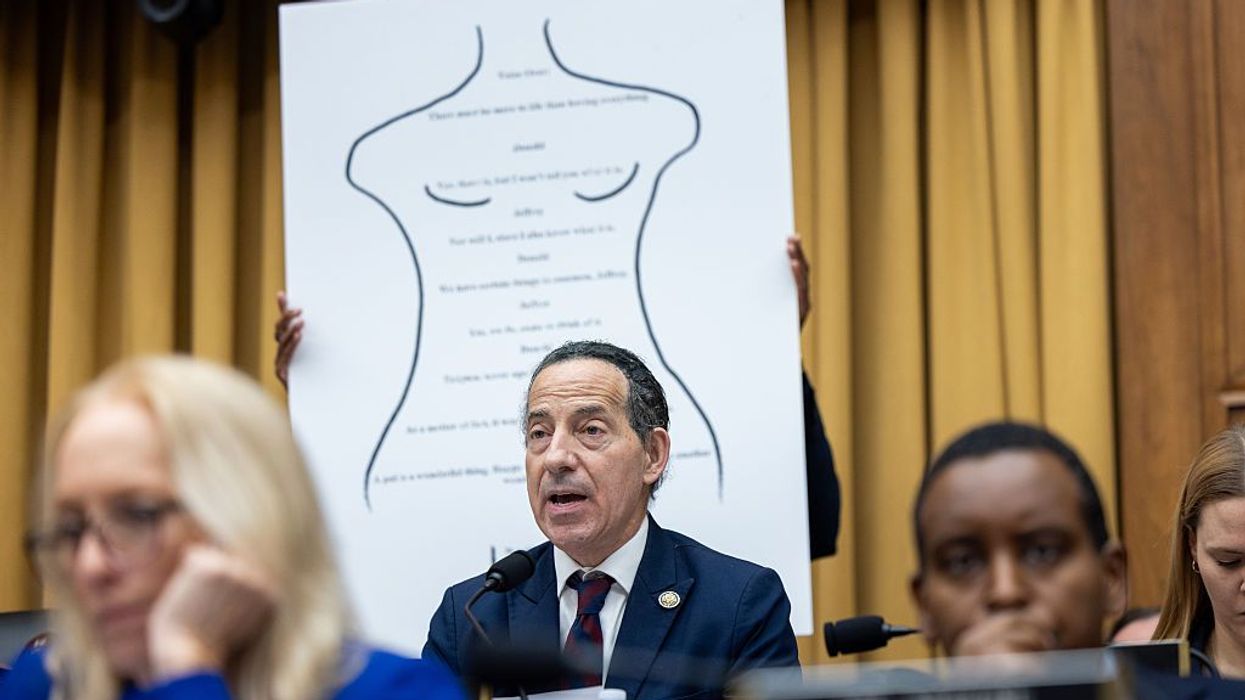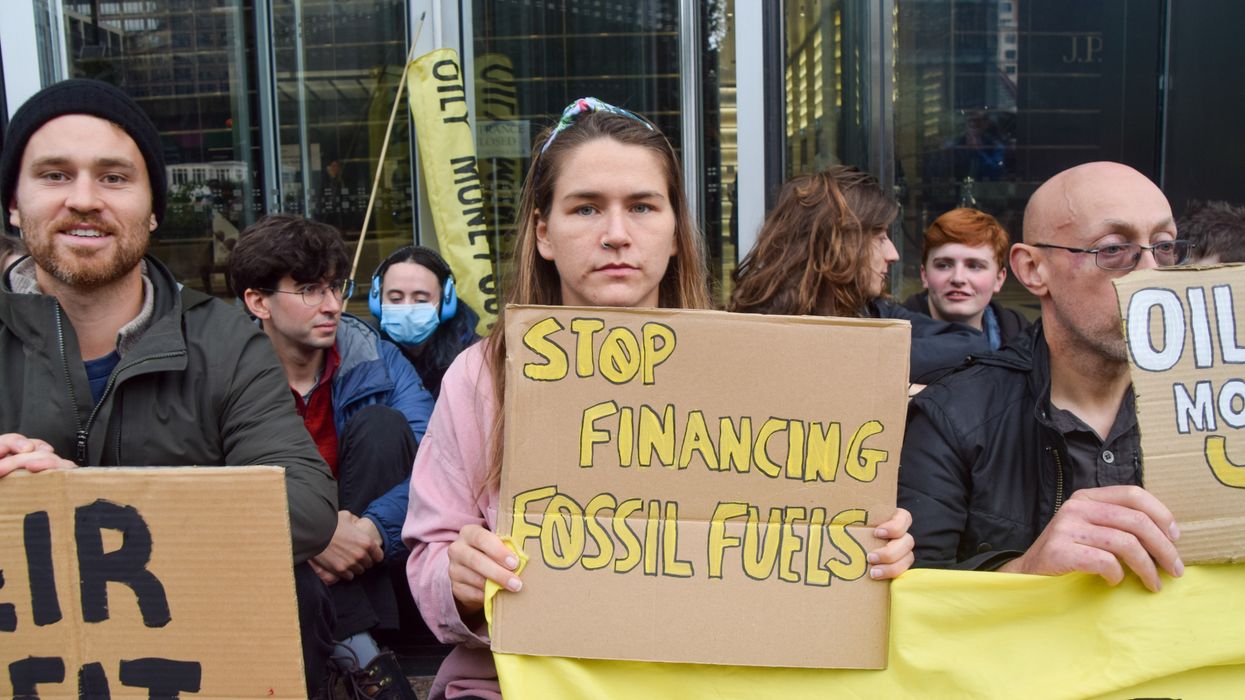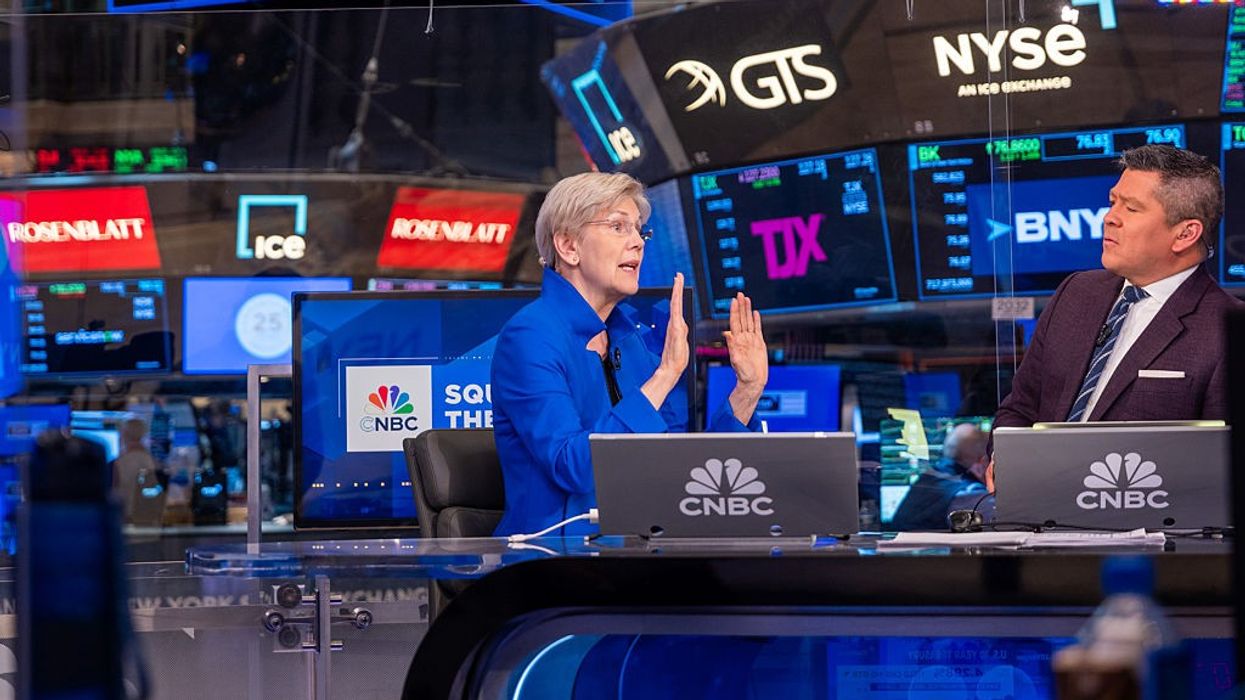Raskin Demands Bank Records in Probe of $1.5 Billion in 'Suspicious' Transactions Tied to Epstein
"Will your bank choose to be part of the cover-up for this massive, international sex trafficking ring that victimized more than 1,000 women and girls?"
US House Judiciary Committee Ranking Member Jamie Raskin on Wednesday sent letters to four major banks demanding records related to more than $1.5 billion in "suspicious" financial transactions tied to Jeffrey Epstein's sex trafficking ring.
"Can Bank of America help Congress understand how Jeffrey Epstein, Ghislaine Maxwell, and their co-conspirators were able to use your bank and others to conduct more than $1.5 billion in suspicious financial transactions to operate their international sex trafficking ring for years without ever being caught?" Raskin (D-Md.) wrote to the bank's CEO, Brian Moynihan.
The congressman began his letters to Bank of New York Mellon CEO Robin Vince, Deutsche Bank CEO Christian Sewing, and JPMorgan Chase CEO Jamie Dimon the same way.
Epstein, a financier and convicted sex offender, was found dead in a Manhattan jail cell in 2019 while facing federal charges for sex trafficking. His death was ruled a suicide, but that has been met with deep skepticism. Maxwell is currently serving a 20-year federal sentence for her related crimes.
The US Department of Justice has refused to release all of its files on Epstein, heightening public, media, and congressional attention on his friendship with President Donald Trump in the 1990s until their alleged falling out in the early 2000s.
"In September, at a hearing with the Federal Bureau of Investigation (FBI) Director Kash Patel, it became clear that the FBI has failed to 'follow the money' with regard to more than $1.5 billion in suspicious transactions related to Jeffrey Epstein's sex trafficking ring," Raskin wrote Wednesday.
"In light of this startling information, House Judiciary Committee Democrats moved to subpoena financial records related to Jeffrey Epstein from these four banks, but Republicans, with the exception of Rep. Thomas Massie (R-KY), blocked these efforts," he explained, urging the institutions to willingly work with the panel.
"For over 15 years, JPMorgan turned a blind eye to evidence of Jeffrey Epstein's child sex trafficking."
Under the Bank Secrecy Act, institutions must implement anti-money laundering policies, which include requiring compliance officers, often in consultation with executives, to file a suspicious activity report (SAR) within 60 days of noticing an activity that raises a red flag, "so federal authorities can be alerted to the potential criminal activity and investigate," the letters stress.
"Despite the public nature of Mr. Epstein's crimes, and the hundreds of millions of his funds flowing through your bank, it appears Bank of America filed only two significantly delayed SARs relating to his conduct—covering $170 million in transactions between Mr. Epstein and billionaire investor Leon Black," Raskin wrote to Moynihan.
The letter to Vince says that "while reports indicate that you filed SARs covering $378 million in payments to and from Mr. Epstein's accounts, these SARs were reportedly filed years after Mr. Epstein's death, well beyond when was statutorily required and when the opportunity to intervene and prevent his conduct had passed."
Raskin's letter to Dimon is particularly scathing, stating: "For over 15 years, JPMorgan turned a blind eye to evidence of Jeffrey Epstein's child sex trafficking. Senior executives at your bank helped Mr. Epstein open 134 accounts and processed over $1 billion in transactions for Mr. Epstein, including after his 2008 conviction for soliciting minors."
"Mr. Epstein had an extensive pattern of suspicious transactions with JPMorgan, including a $175,000 cash withdrawal in 2003 that was used to pay child victims, a series of enormous cash withdrawals totaling more than $1.7 million in 2004 and 2005, and a slew of requests for credit cards and bank accounts for teenagers and young women," he detailed.
Raskin continued:
Despite the flagrant nature of Mr. Epstein’s activities, JPMorgan did not file a single SAR during that time It was only after Mr. Epstein's death that JPMorgan retroactively conducted a review of Mr. Epstein's transactions and filed its first SARs, covering a staggering 4,700 transactions totaling $1.1 billion. Many of these SARs were filed over a decade later than statutorily required.
Documents further show that Mr. Epstein repeatedly communicated with the chief executive of the investment bank at JPMorgan, who alerted Mr. Epstein to the bank's sensitivity about his constant cash withdrawals, and offered him the opportunity to alter his tactics to avoid detection. The JPMorgan executive also repeatedly intervened to ensure that JPMorgan's compliance functions would not interfere with Mr. Epstein's activities. Even more disturbing, in 2010, after Mr. Epstein pleaded guilty to engaging in sex with a minor, the same JPMorgan executive visited Mr. Epstein's properties in New Mexico, New York, and the Caribbean.
In his letter to Sewing, Raskin pointed out that "in 2013, Mr. Epstein moved his financial accounts from JPMorgan to Deutsche Bank."
"Despite news reports indicating Mr. Epstein's serious crimes, Deutsche Bank appeared focused on the potential profitability of its relationship," he wrote. "Deutsche Bank memos advocating opening an account for Mr. Epstein emphasized how lucrative his business would be."
The congressman accused Deutsche Bank of failing to report a "stream of red flags," called out compliance officers for accepting Epstein and his lawyers' "farfetched answers that these transfers were for 'tuition' or 'rent' for Mr. Epstein's 'friends,'" and noted that his attorney "made 100 cash withdrawals totaling over $800,000 in four years, often in amounts just below the $10,000 federal reporting threshold."
"So, Mr. Sewing, we ask: Is Deutsche Bank willing to put its past behind it and help reveal the truth about Jeffrey Epstein, Ghislaine Maxwell, and their co-conspirators? Or will your bank choose to be part of the cover-up for this massive, international sex trafficking ring that victimized more than 1,000 women and girls?" he inquired, asking the same questions of the other CEOs.
Raskin also provided each bank with a list of specific requests for documents and information to send to the panel by October 22.
JPMorgan and Deutsche Bank have each paid hundreds of millions of dollars for claims related to Epstein. Asked about Raskin's letter, Deutsche Bank said in a statement to CNBC that it "takes its legal obligations seriously, including appropriately responding to authorized investigations and proceedings."
Bank of America and BNY Mellon did not respond to CNBC's requests for comment, while JPMorgan declined to comment.
The letters come as the federal government is shut down and House Speaker Mike Johnson (R-La.) has held off on swearing in Rep.-elect Adelita Grijalva (D-Ariz.), the key 218th signature on a discharge petition to force a vote on legislation that would require the Justice Department to release the Epstein files. Johnson claimed earlier this week that her position on the matter was not the reason for the delay, but many Democrats in Congress and other critics are not buying that.


